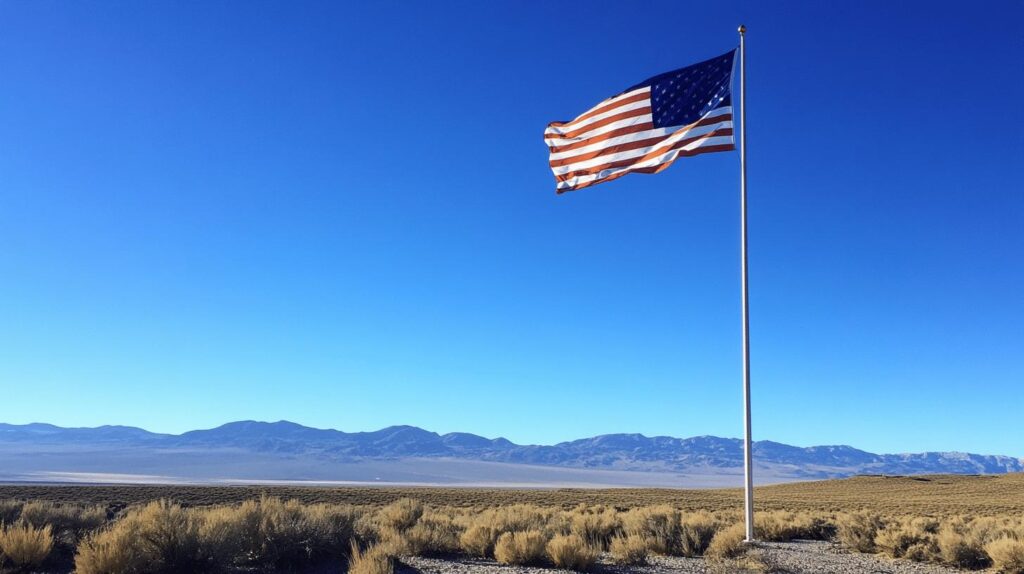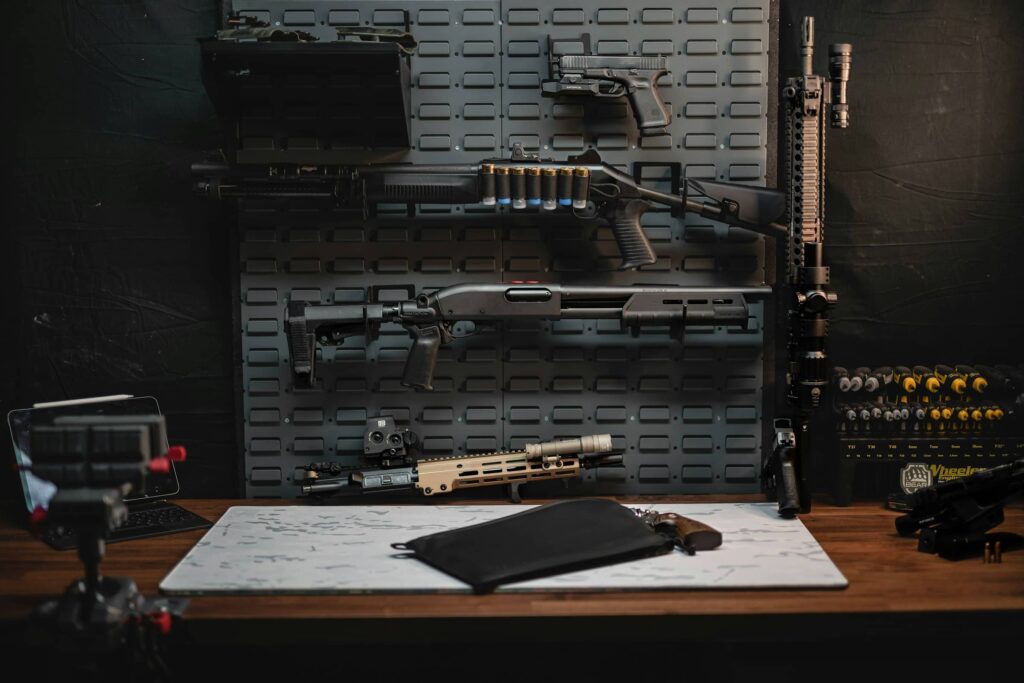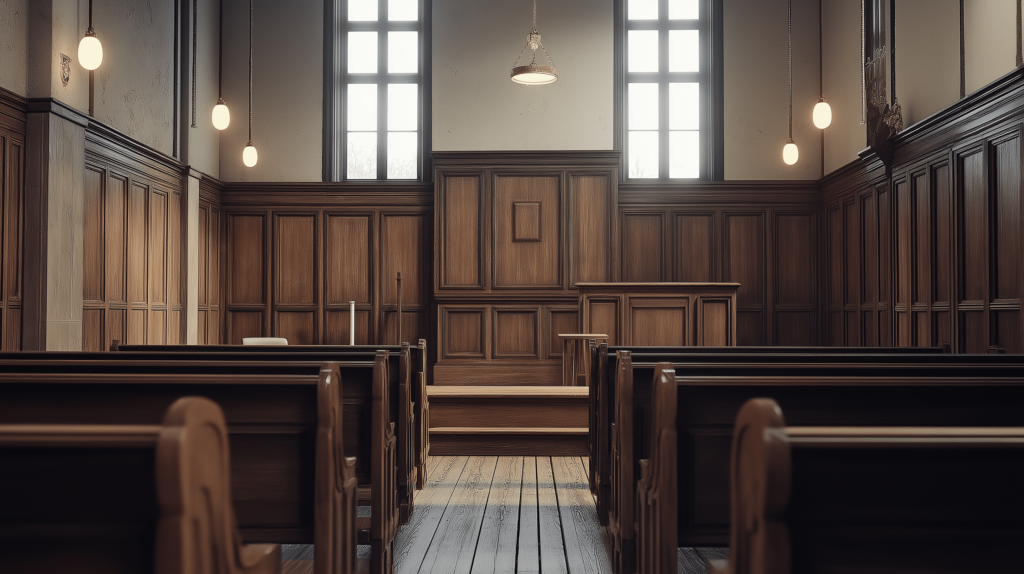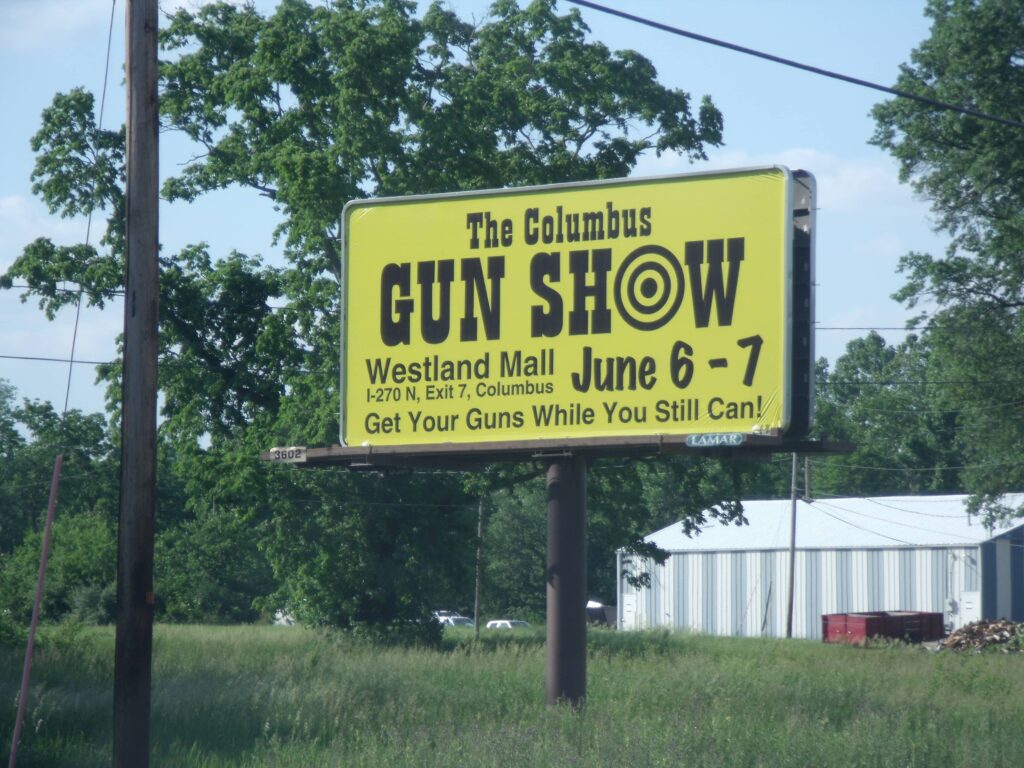How well do you really know the gun regulations in Nevada? With its unique blend of easy-going open carry laws and stringent background checks, Nevada’s gun laws are a patchwork that may surprise even the most informed gun enthusiasts.
While open carry is legal without a permit, concealed carry requires a permit. Significant changes like mandatory universal background checks are shaking things up. In this article we’ll uncover the the important things you should know about Nevada’s gun regulations.
Table of Contents
Overview of Gun Regulations in Nevada
Nevada’s gun laws are notably permissive, with no requirement for firearm registration or licensing of gun owners. This means that individuals in Nevada can purchase and possess firearms without needing to register them with the state or obtain a license to own a gun. This lack of registration and licensing requirements is in stark contrast to some states that impose tighter controls on gun ownership.
Nevada’s gun laws emphasize personal responsibility and the lawful exercise of Second Amendment rights without the burden of additional administrative processes.
Open carry laws in Nevada allow individuals to carry firearms openly without a permit, reflecting the state’s broader approach to personal freedoms regarding firearms. Conversely, concealed carry in Nevada requires a permit, which ensures that those carrying concealed weapons have undergone background checks and met specific criteria.
The process to obtain a concealed carry permit involves completing an approved firearm safety course and passing a thorough background check, demonstrating a commitment to responsible gun ownership (the USCCA has a good write-up on this process).
Recent legislative changes in Nevada have introduced universal background checks for all gun sales and transfers, effective starting January 2020. This law mandates that private sales, as well as sales through dealers, include a background check to ensure that firearms do not end up in the hands of prohibited individuals. This measure aims to enhance public safety by closing loopholes that previously allowed private transactions to occur without such checks.
These updates reflect Nevada’s efforts to balance individual rights with community safety through thoughtful legislation.
Obtaining a Concealed Carry Permit in Nevada

To obtain a concealed carry permit in Nevada, applicants must meet several specific requirements. First, they must be at least 21 years old. This age requirement ensures that applicants have reached an age of maturity and responsibility when handling firearms. Additionally, applicants must complete an approved firearm safety course. This course educates applicants on safe handling, operation, and storage of firearms, emphasizing the importance of responsible gun ownership. Passing a background check is a is the last step in the process. The background check is designed to screen applicants for any criminal history or factors that may disqualify them from carrying a concealed weapon, thereby enhancing public safety.
Nevada also offers reciprocity, recognizing concealed carry permits from other states that have similar requirements. This means that individuals who hold a valid concealed carry permit from a state with comparable standards can legally carry their concealed weapon in Nevada. This reciprocity agreement facilitates lawful travel between states for permit holders and underscores Nevada’s commitment to respecting responsible gun ownership across state lines.
- Age Requirement: Must be at least 21 years old
- Course Completion: Must complete an approved firearm safety course
- Background Check: Must pass a thorough background check
Open Carry and Self-Defense Laws in Nevada
Open carry laws in Nevada allow individuals to carry firearms openly without requiring a permit. This reflects the state’s commitment to upholding the Second Amendment rights of its citizens, providing them with the freedom to carry firearms in plain view in most public areas.
Unlike states with more restrictive gun laws, Nevada does not impose additional regulatory hurdles for those choosing to openly carry, highlighting an emphasis on personal responsibility and lawful ownership. However, while open carry is broadly permitted, gun owners must still be aware of specific localities and private properties that may have their own restrictions.
Nevada’s self-defense laws include a “stand your ground” provision, enabling individuals to use deadly force in self-defense without the obligation to retreat when facing a perceived threat. This law signifies a strong stance on the right to personal protection, allowing residents to defend themselves and their loved ones with confidence and legal backing. The “stand your ground” law ensures that individuals do not have to second-guess their right to self-defense in critical situations, given that the use of force is deemed necessary and reasonable under the circumstances.
| Law | Description |
|---|---|
| Open Carry | Legal without a permit, emphasizing personal freedom and responsibility. |
| Self-Defense | “Stand your ground” law allows use of deadly force without duty to retreat. |
Background Checks and Private Sales
Private gun sales in Nevada are subject to specific regulations that require the involvement of licensed dealers. Do private gun sales in Nevada require a background check? Yes, private sales must be conducted through a licensed dealer who will perform a background check on the buyer. This requirement ensures that all gun transactions, whether through private parties or dealers, are subject to the same scrutiny, helping to prevent firearms from reaching individuals who are legally prohibited from owning them. This process is crucial for maintaining public safety and ensuring responsible gun ownership across the state.
Is firearm registration required in Nevada? No, Nevada does not require firearm registration. This means that while the state mandates background checks for private sales, it does not impose additional burdens on gun owners to register their firearms with the state. This approach aligns with Nevada’s emphasis on individual rights and personal responsibility, avoiding additional bureaucratic processes for lawful gun owners while maintaining essential safety checks through background checks.
- Identify Buyer: Ensure the buyer is eligible to purchase firearms.
- Contact Dealer: Arrange for a licensed dealer to handle the sale.
- Conduct Check: Dealer performs a background check on the buyer.
- Complete Sale: Finalize the transaction upon successful background check.
Prohibited Locations and Individuals in Nevada
In Nevada, there are specific locations where carrying firearms is strictly prohibited to ensure the safety and security of sensitive environments. Where are firearms prohibited in Nevada? Firearms cannot be carried in schools, government buildings, and airports. These restrictions are in place to minimize potential threats and safeguard public spaces where large groups of people congregate or where sensitive governmental functions occur. While Nevada’s laws are generally permissive regarding gun carry, these location-based restrictions underscore the importance of safety and order in places where the presence of firearms could escalate risks.
Who is prohibited from possessing firearms in Nevada? Certain individuals are legally barred from possessing firearms in Nevada due to concerns over public safety and personal responsibility. Among those prohibited are convicted felons, individuals with restraining orders for domestic violence, and those deemed mentally ill. By enforcing these prohibitions, Nevada aims to maintain a balance between the rights of responsible gun owners and the safety of the broader community.
- Convicted Felons: Individuals with felony convictions.
- Restraining Orders: Those under restraining orders for domestic violence.
- Mentally Ill: Persons deemed mentally unfit to safely handle firearms.
Comparison of Nevada and Federal Gun Laws

Nevada’s gun laws are characterized by their relative leniency when compared to federal regulations. Whereas federal law outlines specific restrictions on firearm possession, Nevada allows for more personal freedom in gun ownership. For instance, Nevada does not require firearm registration or licensing for gun owners, which is a regulatory step that federal law does not mandate but is often adopted by other states. This absence of registration underscores Nevada’s approach to minimizing administrative barriers for gun owners, promoting responsible ownership without the need for extensive oversight.
Federal laws impose several restrictions on firearm possession, particularly targeting individuals deemed high risk, such as convicted felons. Does federal law prohibit firearm possession by certain individuals? Yes, federal law prohibits firearm possession by individuals such as convicted felons, those with restraining orders related to domestic violence, and individuals deemed mentally incompetent. In Nevada, while the state aligns with these federal prohibitions, it does not add further restrictions, maintaining its stance on protecting the rights of responsible gun owners.
When compared to neighboring states like California, Nevada’s gun laws are notably more lenient. Nevada permits open carry without a permit, and there are no state-imposed magazine capacity limits or assault weapon bans. In contrast, California requires firearm registration and imposes strict regulations on both magazine capacities and assault weapons. This comparison highlights Nevada’s commitment to safeguarding Second Amendment rights while balancing the need for public safety through targeted legislative measures.
| Law Type | Nevada | Federal |
|---|---|---|
| Registration | Not required | Not mandated federally, varies by state |
| Open Carry | Legal without a permit | No federal stipulation, varies by state |
| Prohibited Individuals | Aligns with federal prohibitions (e.g., felons, restraining orders) | Prohibits felons, individuals with restraining orders, mentally ill |
Final Words
Navigating gun regulations in Nevada involves understanding multiple facets, from open carry rules to recent legislative updates like universal background checks.
As discussed, obtaining a concealed carry permit requires meeting specific criteria, including age and safety course completion. Open carry remains legal without a permit, complemented by the “stand your ground” self-defense law. Background checks for private sales are mandatory, although firearm registration is not.
Certain locations and individuals are prohibited, reflecting both state and federal restrictions.
Overall, Nevada’s relatively lenient stance compared to federal laws allows for varying freedoms while maintaining crucial safety checks.
FAQ
What are the key gun regulations in Nevada?
Nevada does not require firearm registration or licensing of gun owners. Open carry is legal without a permit, while concealed carry requires a permit. Universal background checks for all gun sales and transfers have been effective since January 2020.
How can someone obtain a concealed carry permit in Nevada?
To get a concealed carry permit in Nevada, applicants must be at least 21 years old, complete an approved firearm safety course, and pass a background check. Nevada recognizes permits from states with similar requirements.
What are Nevada’s laws regarding open carry and self-defense?
Open carry of firearms is legal without a permit in Nevada. The state also has a “stand your ground” law, allowing individuals to use deadly force in self-defense without having a duty to retreat.
What is required for conducting a private gun sale in Nevada?
Private gun sales in Nevada must involve a licensed dealer to conduct a background check. There is no firearm registration requirement. Steps include identifying the buyer, contacting a dealer, conducting the check, and completing the sale.
Where and who are prohibited from carrying firearms in Nevada?
Firearms are prohibited in locations such as schools and government buildings. Individuals barred from possessing firearms include convicted felons, those with restraining orders for domestic violence, and the mentally ill.
How do Nevada’s gun laws compare with federal laws?
Nevada’s gun laws have fewer restrictions compared to federal laws, which prohibit firearm possession by certain individuals, like convicted felons. Nevada also has fewer restrictions than some neighboring states.
- The Right Gear for Upland Hunting - December 21, 2024
- How to Get a Suppressor in a Few Steps - December 5, 2024
- What is The Protection of Lawful Commerce in Arms Act? - November 15, 2024




